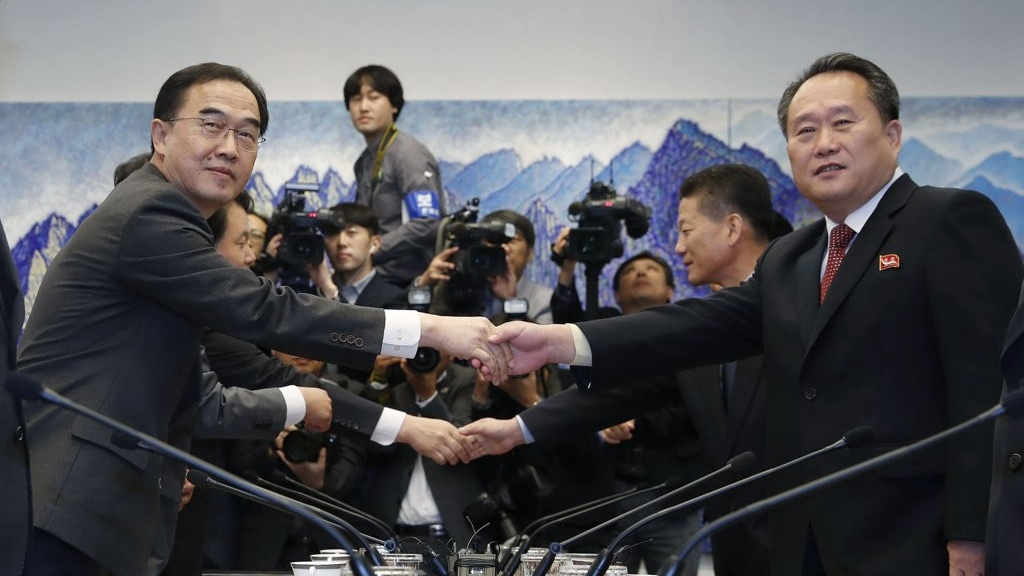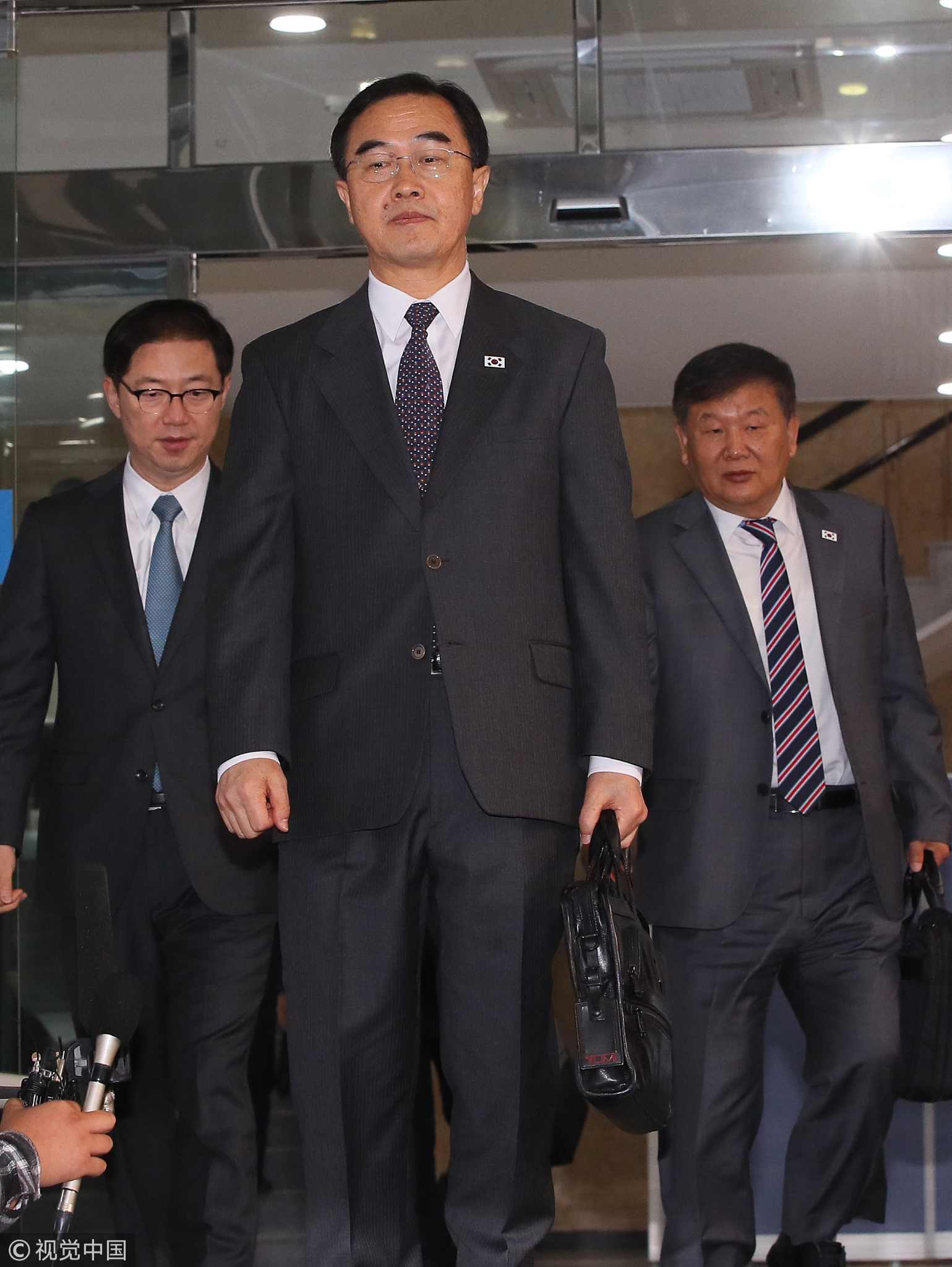
Politics
10:40, 15-Oct-2018
DPRK, ROK make progress in implementing Pyongyang Declaration
Updated
09:43, 18-Oct-2018
CGTN

The Democratic People's Republic of Korea (DPRK) and the Republic of Korea (ROK) have reached consensus on a series of topics regarding logistics, humanitarian, military and sports matters during the high-level talks in the border village of Panmunjom. This comes as the latest effort by the North and the South to implement the Pyongyang Declaration announced in September.
The senior-level dialogue started at 10:00 a.m. local time (0100 GMT) as scheduled at the Peace House, a ROK's building in the truce village.
Yonhap reported that the two sides agreed to:
- To break ground for road, railway connection in late November or early December;
- To hold a Red Cross meeting in November;
- To hold general-level military talks as soon as possible;
- To hold sports talks late this month to discuss co-hosting of 2032 Olympics.

ROK Unification Minister Cho Myoung-gyon (C) and other delegates leave Seoul, October 15, 2018. /VCG Photo
ROK Unification Minister Cho Myoung-gyon (C) and other delegates leave Seoul, October 15, 2018. /VCG Photo
The five members of the ROK delegation was led by Unification Minister Cho Myoung-gyon.
Before heading to the dialogue venue, Cho told reporters that the dialogue agenda would be the implementation of the Pyongyang Declaration and schedules for working-level talks for detailed discussion.
The DPRK delegation was headed by Ri Son Gwon, chairman of the Committee for the Peaceful Reunification of the Fatherland.
The Pyongyang Declaration was signed by ROK President Moon Jae-in and top DPRK leader Kim Jong Un after their third summit in Pyongyang in September.
To implement the declaration, the senior delegates from the two countries were dispatched to discuss ways to modernize and connect railways and roads across the inter-Korean border and form a joint military committee to stop hostile acts near the border.
They were also expected to fix the date for Red Cross talks to discuss the launch of a venue for a regular reunion of Korean families, separated by the 1950-1953 Korean War while discussing cultural and sports exchanges.
The Korean Peninsula remains in a technical state of war as the three-year war ended with an armistice.

SITEMAP
Copyright © 2018 CGTN. Beijing ICP prepared NO.16065310-3
Copyright © 2018 CGTN. Beijing ICP prepared NO.16065310-3